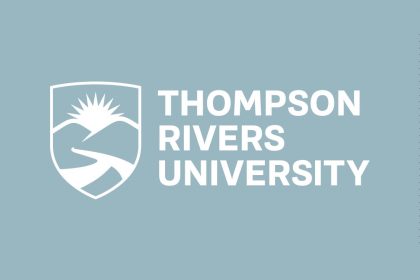Post-secondary education is evolving and emerging. Sometimes, new concepts and ideas need to be understood before they can be applied in practice. Micro-certification is one such idea. Even though it was first introduced in the modern sense in 2010 by Mozilla, it has been on the edge of innovation for some time. Our first FLO MicroCourse on micro-certification was designed to start this process by helping participants to fully understand micro-certification and apply it to our British Columbia context.
Connecting through FLO
Over five days, 50 post-secondary professionals and students learnt the basics of micro-certification, built community, and put forth ideas about how micro-certification can be applied in our province. Two synchronous sessions were held: one by senior leaders at the BC Council on Admissions and Transfer, and then a wrap-up session where small groups discussed and recorded next steps. In the middle of this week, there was also a robust discussion on the Strengths, Weaknesses, Opportunities, and Threats (SWOT) of micro-certification from different stakeholder perspectives. The result was a week of rich learning and community building.
SWOT Analysis
The SWOT discussion was divided into educator, industry, and student perspectives, and each participant contributed according to the role they most identified with. The responses were collected into a shared document (see Micro-credential SWOT document), and in many respects, are a reflection of the composition of the group, with many falling under the umbrella of educator and fewer holding industry or student perspectives.
Nonetheless, there were some shared themes that emerged. All three groups noted a strength of micro-certifications is efficiency for the student. The shared weakness was the degree to which micro-certifications would be applicable or recognizable. A noted opportunity across all three groups was the degree of accessibility that micro-certifications could bring to students.
In all perspectives, there were both practical and philosophical considerations raised. The practical considerations included the question of how micro-certifications could be implemented, and who at an institution could implement them. On the administrative side, how do you make micro-certifications sustainable financially? Philosophical considerations included a discussion of whether micro-credentials reduce people to descriptions of skills and whether that is desirable.
In our conversation that followed, we acknowledged a unique opportunity for post-secondary educators, institutions, and students to work together.
Next Steps
“We are looking forward to continuing to build our micro-certification community in British Columbia and working together with stakeholders from the diverse fabric of our province to create an environment where micro-certifications can be strategically applied and embraced.”
—Ross McKerlich, open education advisor, regional representative, Interior, BCcampus
“The course provided a valuable opportunity for educators (and students) from B.C. and beyond to come together around a topic that is evidently top of mind. It’s clear that there would be benefit in an ongoing conversation and community of practice to allow us to navigate this emerging field of interest and application and to leverage the expertise of these participants and to support each other as we move forward.”
—Tannis Morgan, researcher, open education, BCcampus
Good news! If you missed this course, but are still eager to dig deeper into micro-certifications in the B.C. context, we will be offering the course again this spring from March 1 to 12. Note that this will be the same content again, but now over a two-week span. We would love to have student and industry partners join us in this conversation, so please invite those in your network who might like to explore micro-certifications with us! To ensure you get the latest information on this event and other happenings at BCcampus, subscribe to our newsletter.
